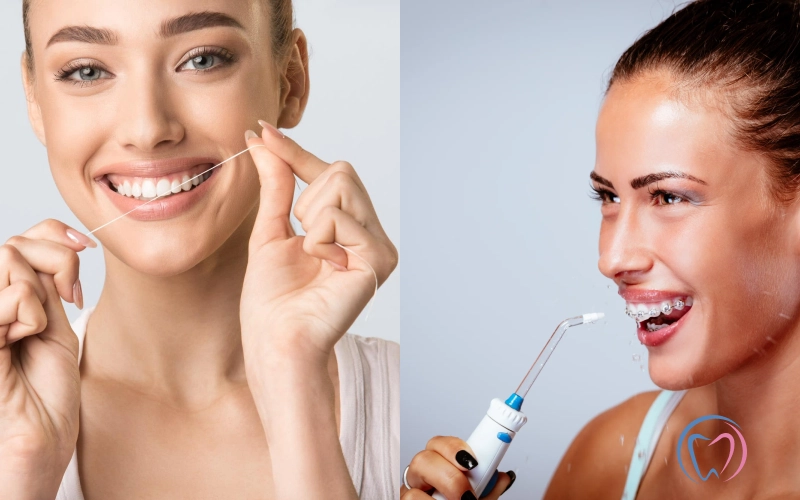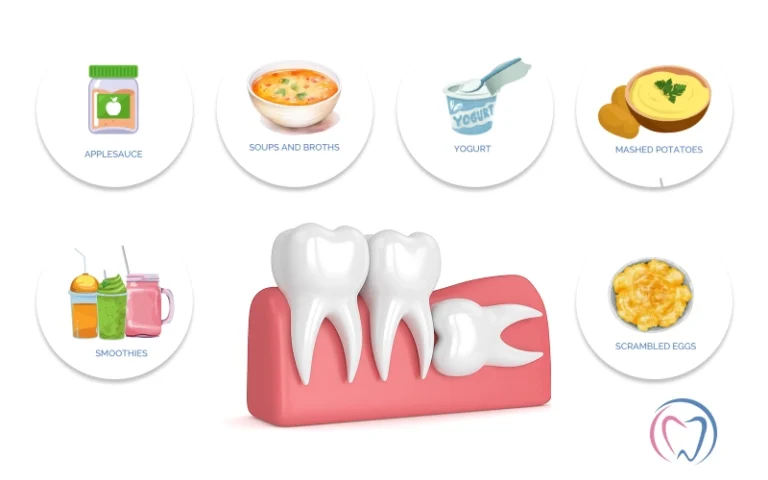Flossing is an important part of the routine for maintaining optimal oral hygiene, which is crucial for overall health. Traditional dental floss was the method of choice for cleaning between teeth for many years. As a viable option, water flossers have become increasingly popular. Based on my experience, from this blog, I’ll help you choose the best method for your dental health.
What is dental floss?
Dental floss is a thin, flexible piece of string, usually made from nylon or Teflon, to clean food particles and plaque from between teeth and underneath the gumline. It can be found in different forms, like waxed, unwaxed, flavoured and unflavoured.
Benefits of dental floss
- Effective plaque removal – The use of floss is highly effective in removing plaque and debris from tight spaces that the toothbrush cannot reach.
- Cost-effective – dental floss is relatively inexpensive and widely available in stores.
- Control – Dental floss offers complete control over the cleaning process, allowing for targeted cleaning in specific areas.
Disadvantages of dental floss
- Technique sensitive – Flossing can cause irritation or bleeding if not done correctly, which is why technique is crucial.
- Time-consuming – For those who have tight dental spaces or larger mouths, flossing can be a time-consuming and tedious process.
- Accessibility – Dental floss can be challenging to manoeuvre for some people with limited dexterity due to its accessibility issues.
What is a water flosser?
The use of water flossers is similar to those used for oral irrigators, but they have a stream of pulsating water that aims to remove food particles and plaque from between teeth and along the gumline. Waterpik and Philips Sonicare are two well-known brands that offer a range of models that can be adjusted for pressure.
Benefits of water flossers
- Ease of use – Water flossers are generally simpler to use, particularly for people who have braces, implants or limited dexterity.
- Gum health – I have studied that water flossers have the potential to reduce gingivitis and promote gum health.
- Cleans hard-to-reach areas – The pulsating water can rhea deeper pockets between teeth and around dental work, which makes it a great choice for those with complex dental histories.
Disadvantages of water flossers
- Cost – Water flossers have a higher cost than traditional dental floss, both in terms of initial investment and potential maintenance costs.
- Bulkiness – they are bulky and require electricity or batteries, which means they take up more space in your bathroom than a simple roll of floss.
- Water supply – A water source is necessary for water supply, but it may not be practical for travel or in certain bathroom setups.
Dental floss vs water flosser; which is better?
- Plaque removal – When used correctly, both dental floss and water flossers can remove plaque, according to research. However, water flossers are more effective at reducing plaque compared to traditional floss.
- Gum health – Both methods have been proven to enhance gum health. however, water flossers may have a competitive advantage due to their ability to effectively reduce gingival bleeding and inflammation, particularly for those who struggle with traditional flossing techniques.
Which one you should choose?
- If you find traditional floss painful or difficult to use a water flosser may be a more comfortable choice.
- Dental floss is more portable and easy to carry if you travel frequently.
- If cost is a major concern, choosing traditional dental floss is the more economical option.
- Both methods are recommended by dental professionals to be incorporated into your oral hygiene routine. By using dental floss in combination with a water flosser, you can achieve comprehensive cleaning by effectively addressing plaque and food particles.
Dental floss and water flossers both have their benefits and potential disadvantages. While flossing has been a standard part of oral hygiene for a long time, water flossers are an innovative alternative that can improve gum health and plaque removal. Ultimately, the ideal choice is determined by your personal preferences, lifestyle and dental needs.







